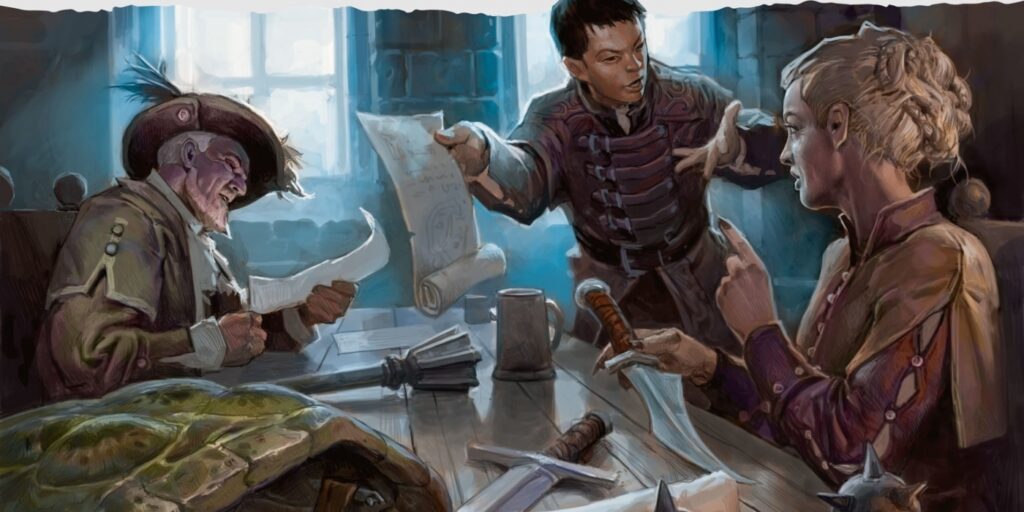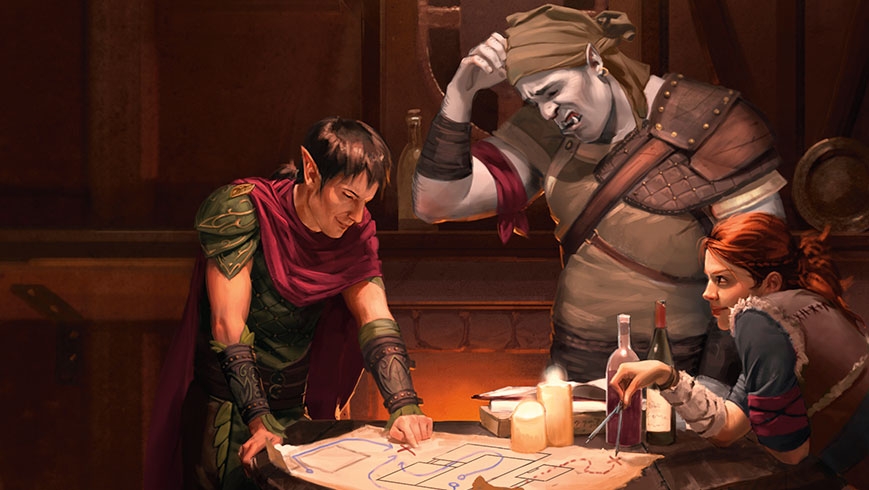D&D: Five Ways to Get the DM to Tell You Everything You Need to Know

Adventuring can be tricky business when it comes time to solve a puzzle or a murder—but here are five ways to investigate anything.
Adventuring is like a hurricane at times, it can be full of eldritch blasts, speeding carriages, flying machines, even whole cities full of duck people on some memorable occasions. Adventuring life can feel like a blur, sometimes, except when it comes time to solve a mystery and it all comes screeching to a halt as you figure out where to go next.
Now “mystery” here can refer to many things. From who killed the nobleman lying dead on the floor of the expansive estate (the butler almost certainly), to simpler things like “what happened here?” or “what are these cultists trying to do?” Any time you’re trying to investigate the unknown, you’re trying to solve a mystery. And to do that in D&D can be tricky, but here are some tools to help you when you feel stuck.
The Right Skill in the Right Place
Sometimes all you need is the right skill. And in D&D, you have a few easy skills to draw upon to try and learn more. You might ask your DM to make an investigation check, but, depending on what you’re trying to discover, you might also draw on the “knowledge” skills like Dungeoneering or History or Arcana, and if you’re out in the wilds, Nature or Survival might yield some clues.
Money Talks, Get an Expert Opinion
They say that money makes the world go ’round, and when you’re hard-pressed to make an honest GP, an easy GP might sub in. If you’re trying to get information out of someone, you could potentially bribe them to tell you what you want to know. But also if you have need of one of the skills mentioned above, but nobody managed to take Religion this time, tell the DM you want to hire an expert. Get yourself a Daniel Jackson to come and translate the mysterious runic language you’ve just uncovered before you go have adventures.
This is also a great opportunity for the DM to introduce lovable NPCs.
Divination
Magic makes life easier for any adventurer, and if you’re a Diviner, then it gets even easier. A little divination magic goes a long way toward solving whatever you need to solve. And while the eponymous Divination spell, Divination, is 4th level, even the entry-level Divination spell, Augury can get a stuck party unstuck. Just get used to asking questions like “will we learn more about X if we do Y?” and you can often find the thread you need to pull to unravel the mystery at hand.
Necromancy
Contrary to what you might think, Divination is far from the only method useful for extracting information. And a little necromancy goes a long way because when you have something like Speak with Dead, then contrary to what the pirate song says, dead men DO tell tales.
Sage Advice
Finally, if you know you’re going to be in a campaign, try being a Sage. With the Sage background, you gain the following features:
When you attempt to learn or recall a piece of lore, if you do not know that information, you often know where and from whom you can obtain it. Usually, this information comes from a library, scriptorium, university, or a sage or other learned person or creature.
Of course, your DM can always rule that it’s hard to get to, or that you have to do a quest to unlock it, but at least you’ll have a course of action. And then you can start rolling dice and playing D&D instead of standing in front of an innocuous chair for the entire session, trying to figure out what it means.
Happy adventuring!







